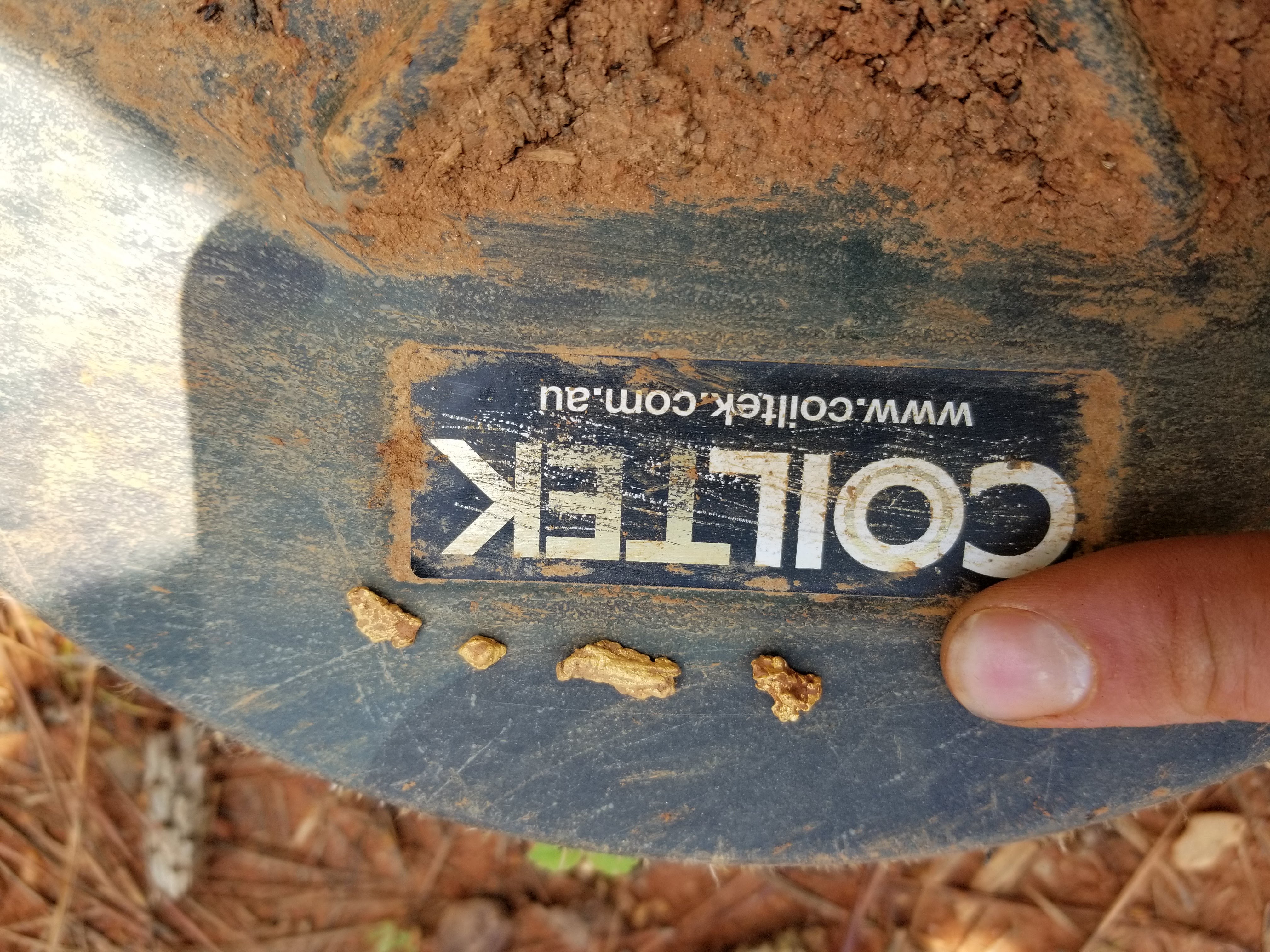All Articles
Legislative Update
July 1999 by Robert Sanregret
Summary
2. Federal Land Acquisition Bills May be Stalled in the Senate. The House Committee has reviewed the land acquisition bills, but Senate companion bill, S.25, has apparently hit a snag.
3. Plans of Operation Would be Blocked by Mill-Site Restrictions. Congressional Committee has delayed to September 30 the Administration's mill-site limitations that would seriously restrict mining.
4. Congress Approves New Moratorium on Babbitt's Revised 3809 Regulations. Congress has placed a moratorium on the Revised 3809 Regs until about November 30.
5. Hidden Law—Jury Trials in "Takings" Cases. The U.S. Supreme Court has ruled that a landowner has the right to a jury trial in a "takings" case against local government involving land use regulations.
Comments
The Senate companion to H.R.883 is S.510, introduced this Session by Senator Ben Nighthorse Campbell (R-CO). The American Land Sovereignty Protection Act has been introduced in the last three Congressional Sessions. In the last Session (1997-1998), it passed the House, and was introduced in the Senate, where it died without a vote.
The current method of selecting sites for UN designation has been by confidential consultation between our President and United Nations committees, without consulting Congress and without public announcements, publicity or advance notice of any kind. This "secret" designation process will certainly end with the enactment of the American Land Sovereignty Protection Act. UN rules do currently provide that if local government or local residents are opposed to UN designation of a site, then that designation must be rejected. The citizens and local government in the State of Kentucky have been successful in preventing several UN designations by aggressively communicating their opposition to the UN and to Congress.
Now that the American Land Sovereignty Protection Act has passed the House (H.R.883), your U.S. Senators are particularly interested in your views on the Senate companion bill, S.510.
2. Federal Land Acquisition Bills May be Stalled in the Senate. The House Resources Committee has had several Congressional hearings, including field hearings in Alaska, New Orleans and in Salt Lake City, regarding the two primary versions of the Land Acquisition Bills—H.R.701 by Rep. Doug Young (R-AK) and H.R.798 by Rep. George Miller (D-CA).
There are, however, "serious fiscal obstacles" to the Senate companion bill, S.25, according to Chairman Slade Gorton (R-WA) of the Senate Interior Appropriations Subcommittee. The primary "obstacle" is the massive amounts of money that would be required to create the permanent annual off-budget funding to be locked in under the bills: This is of particular concern considering that President Clinton's "Lands Legacy Initiative," with its large and costly land acquisition program, was instituted last year when there was, an envisioned Federal-budget surplus, before the current protracted war in Yugoslavia, and before the substantial related military and upcoming rehabilitation costs.
Your Senators would be interested in your views on this subject.
3. Plans of Operation Would be Blocked by Mill-Site Restrictions. As previously discussed in this column, the Department of the Interior (DOl) and the U.S. Forest Service (USFS), through virtually identical written "Solicitor's Opinions" from their respective solicitors, have promulgated a new "policy" that would limit a mine to 5 acres of mill-site area for each lode claim. The new policy and "opinions" also prohibit mining operators from the established practice of storing tailings or waste from lode claims on neighboring lode claims.
The effect of this policy change would be to further restrict mining by not allowing for the necessary space to locate mine tailings, waste, equipment and facilities. Implementation of this policy would block most plan applications currently pending with the Forest Service and BLM as well as future mining efforts.
Senator Slade Gorton (R- WA), who was specifically concerned with the "triggering event"—the rejection of a proposed plan of operation for the Crown Jewel Mine in his state, based upon the 5 acre mill-site "opinion"—attached a provision to H.R.1141 prohibiting implementation of the new DOI/USFS restrictive mill-site policy change until September 30. H.R.1141 is the all-important emergency Fiscal Year 1999 Appropriations Bill, which, along with Committee recommendations, was passed in the House and Senate, and was signed into law by the President in June.
4. Congress Approves New Moratorium on Babbitt's Revised 3809 Regulations. The same bipartisan Senate/House Conference Committee that accepted Senator Gorton's mill-site rider to H.R.1141 has also approved another rider—a new moratorium on Interior Secretary Babbitt's issuance of the Revised Final 3809 Surface Management Regulations.
This Committee accepted a Senate-approved moratorium on the 3809 Regulations until 120 days after submittal of the pending National Academy of Sciences (NAS) report on these regulations which is due by July 31. This places the earliest possible effective date of Babbitt's Revised 3809 Regs at about November 30.
These two riders are only proposed amendments to a bill before Congress yet to be voted upon. H.R.1141 may possibly be changed, and could be vetoed by the President.
In mid-May, Interior Secretary Babbitt sent a 3-page written "Instruction Memorandum" to all BLM State Directors on "BLM Hard Rock Bonding Policy, Post-NWMA v. Babbitt." You may recall that on May 13, 1998 a Federal Court voided Secretary Babbitt's proposed bonding amendments. This new BLM policy memo covers bonding of Plans of Operation, compliance with 3809 regulations, bond calculations, non-compliance and financial instruments allowable for bonds. This new BLM "policy" is being studied, and any substantial changes in BLM's enforcement or implementation relative to bonding will be reported. Stay tuned.
5. Hidden Law—Jury Trials in "Takings" Cases. On May 24, the U.S. Supreme Court (USSC) ruled in a 5-4 decision—City of Monterey v. Del Monte Dunes—that a landowner has the right to a jury trial in a 5th Amendment property "regulatory takings" case against a local government involving land use regulations.
The City of Monterey barred a developer from building residences on his 37-acre oceanfront land parcel because the land was "potential habitat" for the endangered Blue Smith Butterfly, even though no such butterflies had ever been seen on the property. The City of Monterey felt that the property was potential habitat for the endangered butterflies because the parcel contained some common non-endangered buckwheat plants that made the parcel the type of habitat where Blue Smith Butterflies might like to live.
Most "inverse condemnation" and "takings" cases are brought in the Court of Federal Claims, and are not decided by juries. USSC, however, has made it clear that the landowner has the right to seek damages in a Federal District Court with a jury rather than a judge deciding the valuation amount.
This case was one of the first selected for argument and consideration by the USSC in its October 1998 Term—and the case was discussed in this column just after those arguments. Although the USSC did not go so far as to say that the "taking" was unjustified, the court confirmed the right to a jury trial on the valuation issue. The jury award of $1.45 million to be paid to the landowner by the City of Monterey for its "regulatory taking" of the landowner's 37 acres was confirmed by the UCCS. In effect, the Court has told the City of Monterey that if the City wants to spend its money on "potential habitat" for endangered butterflies, the City may do so—and, that the involuntary "seller" of that potential habitat land has the right to a jury trial to determine the City's "purchase price" for the property.
Thus, USSC rejected the argu ment of the City that the granting of a jury trial in this case would "violate historical practice."
With the landowner now having a clear right to a jury trial in cases of "takings" by regulation, there may be a substantial "chilling effect" on governmental regulation of land use
Conclusion
Congress and the public are becoming increasingly more alert to the various methods utilized by governmental administrative agencies in changing laws without involving Congress—including Departmental Regulations, Administrative " cies," Executive Orders, Internatlonal Agreements and unratified Treaties.
Congress has the power to stop administrative abuses, unlawful regulations and property "takings," when they are made aware of them. Your views should be expressed to your members of Congress, to the Chairman and members of pertinent Congressional Committees, and to your State and local officials.
Senator (fill in the blank)
U.S. Senate
Washington, D.C. 20510
(202) 224-3121
Representative (fill in the blank)
U.S. House of Representatives
Washington, D.C. 20515
(202) 224-3121

Strategies for Detecting Heavily Pounded Areas—Part III
 This helps me to see if there is a pattern taking place with where I am finding nuggets, and when I study the map layer with all of my pins marking nuggets, I can drop in new pins where I want to search the next day.
This helps me to see if there is a pattern taking place with where I am finding nuggets, and when I study the map layer with all of my pins marking nuggets, I can drop in new pins where I want to search the next day.
What's In A Name?
 The names attached to these areas came about from many sources. Many are easy to see why the name was given while others had a more contrasting note to them.
The names attached to these areas came about from many sources. Many are easy to see why the name was given while others had a more contrasting note to them.
How to Utilize Assays and Evaluate Results
 Ask the lab manager how your ores will be tested, and ask to see the equipment that will be used. If you are told it’s a secret that can’t be explained, you need another assayer.
Ask the lab manager how your ores will be tested, and ask to see the equipment that will be used. If you are told it’s a secret that can’t be explained, you need another assayer.
Company Notes
• AZCO Mining Inc.
• Great Quest Metals Ltd.
• Royal Gold, Inc.
• Altair International, Inc.
• Vista Gold Corp.
• Placer Dome
Ask The Experts
Designing my own dredge...
Subscription Required:
The Bawl Mill
• Gold Hunters Hit the Web in Fight with Missile Range
• Religious Broadcaster in Liberia Mining Venture
• Kazak Government Collects Gold from Residents
• Recreational Gold Panning on the South Yuba River
• Groups Wonder Meaning of Call for More Wilderness
• Mining Claim Maintenance Fee Due
• Desert Bonanza
• Gold Near Boulder, Colorado
• Company Notes
• The Carissa Gold Mine, South Pass, Wyoming—A Sleeper?
• Tantalum
• Building the American Dream
• Picks & Pans: A Pay Streak in Slate
• Elizabethtown: Uncovering a Buried California Mining Community
• California Diamonds
• Melman on Gold & Silver
• Mining Stock Quotes and Mineral & Metal Prices
• Silver Demand Driving Mine Production Up—Mexico Remains Number One Producer
• Looking Back
Free:









